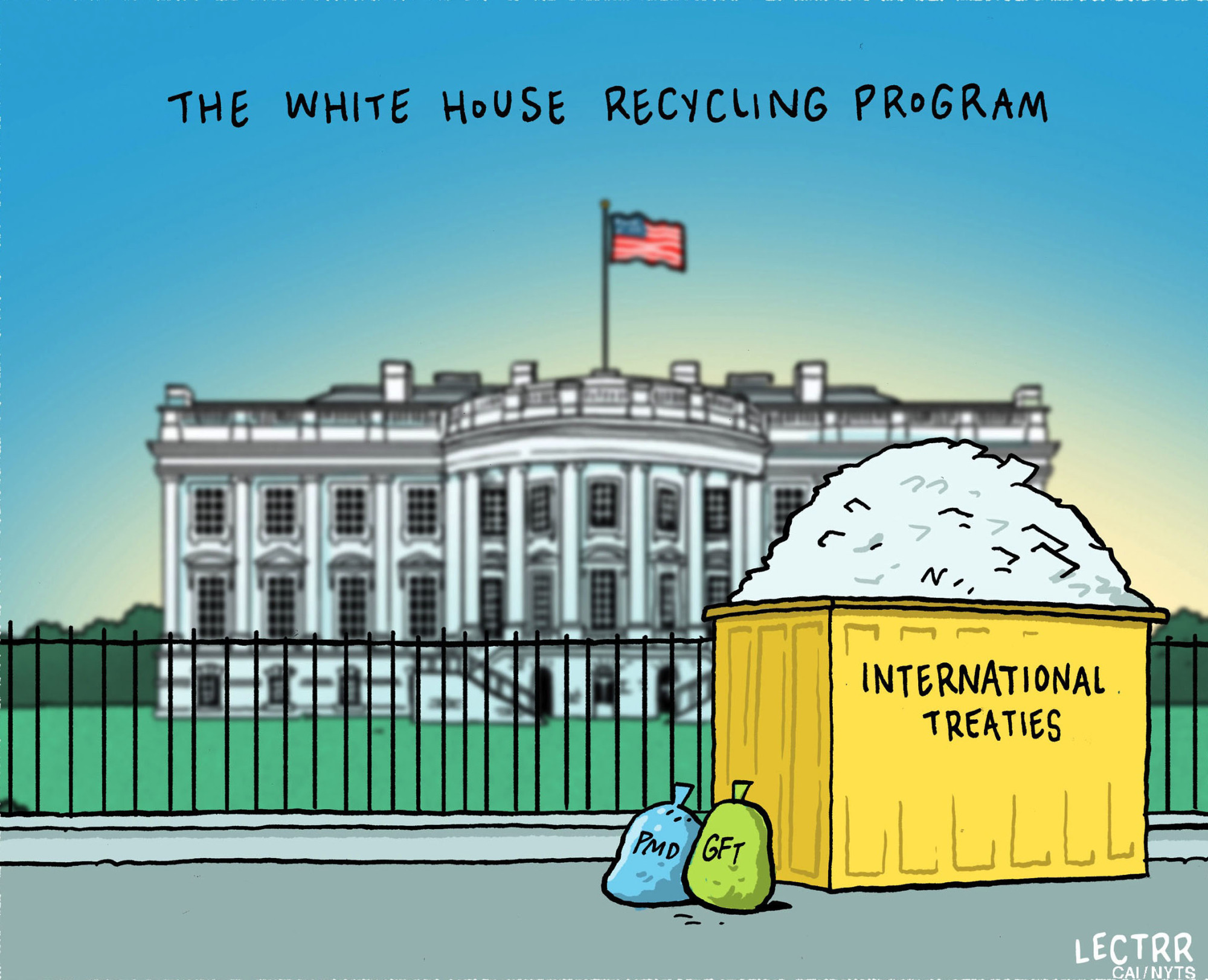U.S. President Donald Trump's decision to withdraw from the Iran nuclear deal is a global tragedy likely to unsettle an already volatile Middle East and a world in some disarray. Trump has pulled out of the deal not because it was flawed, but because it was working as intended and this posed an insurmountable obstacle to potential military strikes on Iran. As a consequence, Trump's decision will worsen relations with Europe, destabilize the Middle East, complicate negotiations to reverse North Korea's nuclearization and damage the global nuclear order.
There are two "structural" explanations and a host of personal reasons for Trump pulling out. Most importantly, the neoconservative hawks, back in charge of U.S. foreign policy, are determined to follow the Washington playbook of militarized responses to foreign crises. They believe in using U.S. power to remake the world in their image, disdain arms control treaties, view the need for allies as evidence of U.S. military weakness not diplomatic strength and want to eliminate regimes not weapons. To dedicated ideologues, multiple past failures do not prove the policy's inherent flaw, merely that it wasn't fully implemented. Thus National Security Adviser John Bolton is an unrepentant cheerleader for the 2003 Iraq War.
Bolton is also a good exemplar of a second structural explanation. As long as the deal stood, the option of a military strike on Iran was off the table. This too is reminiscent of Iraq, when the U.N. inspectors could not be given time to complete their job because certifying Iraq to be free of weapons of mass destruction would have removed the excuse for invasion. The first director-general of the Organization for the Prohibition of Chemical Weapons was Brazilian diplomat Jose Bustani. In 2002, he tried to convince Iraq to sign the Chemical Weapons Convention so the OPCW could certify it was free of chemical weapons. As Bustani confirmed a decade later, the U.S. forced his ouster because his effort to place OPCW inspectors in Iraq to certify the absence of chemical weapons would have obstructed the U.S. determination to eliminate Saddam Hussein.



